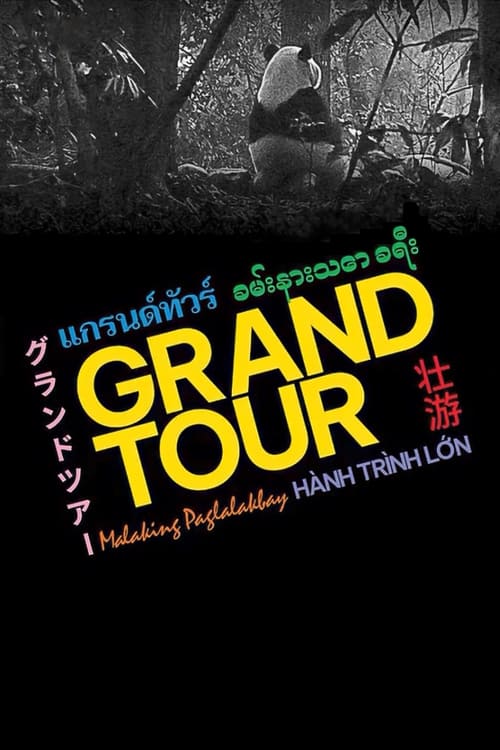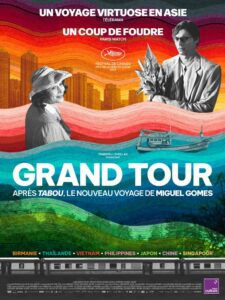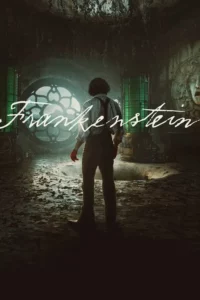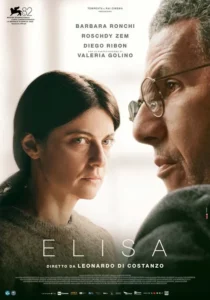A film by Miguel Gomes
With: Gonçalo Waddington, Crista Alfaiate, Cláudio da Silva, Lang Khê Tran, Jorge Andrade, João Pedro Vaz, João Pedro Bénard, Teresa Madruga, Joana Bárcia, Diogo Dória
Rangoon, Burma, 1917. Edward, a civil servant for the British Empire, runs away from his fiancée Molly the day she arrives to get married. During his travels, however, panic gives way to melancholy. Contemplating the emptiness of his existence, the cowardly Edward wonders what has become of Molly…Determined to get married and amused by Edward’s move, Molly follows his trail on this Asian grand tour.
Our rate: **
With Grand Tour, Miguel Gomez‘s selection debut, he takes a break from the very long running time of A Thousand and One Nights, returning to a format closer to that of Taboo. As he himself describes it, his primary intention is that of a journey. To propose a journey that he himself would have made. His Moby Dick, somewhere. Romanticized in the form of a stalker, the process allows him to observe and stop at the various ports of call he proposes, here or there, then or now. The process of the Grand Tour (going from one former British Asian colony to another) also allows him to experiment with encounters – and non-encounters! – between different countries, different cinemas, starting with his own, and memories he might have of other filmmakers who have narrated these same territories. The process also slightly blurs the boundaries between fiction and documentary, past and present, with Gomez simply filming in the present, applying a black-and-white filter to the fictional images, leaving in color those specific to the dream of the man on the run – rather critical visions of the future on the whole, and shooting the interior scenes in the studio.
For Gomez, suspending time also means pausing on snippets, moments borrowed from other filmmakers, allowing the critics who love them to note here and there images and sequences linked to Hsao Hsien, Yang, Ozu or Kurosawa, Oliveira or Ruiz, among many examples. The dialogues, too, play with these temporal registers, blurring reference points in small ways (from the bombastic language of the colonial era to the more accepted vulgarity of our own time, a laugh that can be heard or a whistle to mask commonplace insults).
If the film, in its more narrative and feminine aspect, becomes pleasant – without ever dazzling – to follow once the long exposition is over (pedagogical without wanting to be, the quality of the images and the lack of variety in the proposals make us fear a pure experimental film that plays with amateur images), It suffers, however, from the patchwork effect it creates, even if Gomez does not go for the glitz and glamour of Tarantino’s electric style, for example, as he is adept at inviting cinephile references into his own work. Nor, like Honoré, does he opt for a marked-out, highlighted path that would tell the viewer, see here I’m talking about a film by Visconti, Antonioni or Fellini. His process is much more like a lighter, more discreet gesture (which delights treasure-seeking critics), relying on little bubbles or pastilles slipped in here and there. Except that this same process deprives us of a more global reading and approach to Gomez, one that would carry us away. In short, to make the poetry come through less artificially, we would have preferred it to emanate, in other proportions, from Gomez’s own words and images. For this Grand Tour, in the final analysis, like the accelerated tourist trips, tells us very little about a country or a city, with only a few postcards – we retain the ones that speak to us – feeding our memory, where, on the contrary, a Hsao Hsien or a Yang, to quote the filmmakers of the Taiwanese new wave, captured with great accuracy and patience (we could just as easily evoke the work of Zhang-Ké or Wang Bing) the past, the mutation in the making, and the frontier left between the two.










Be First to Comment